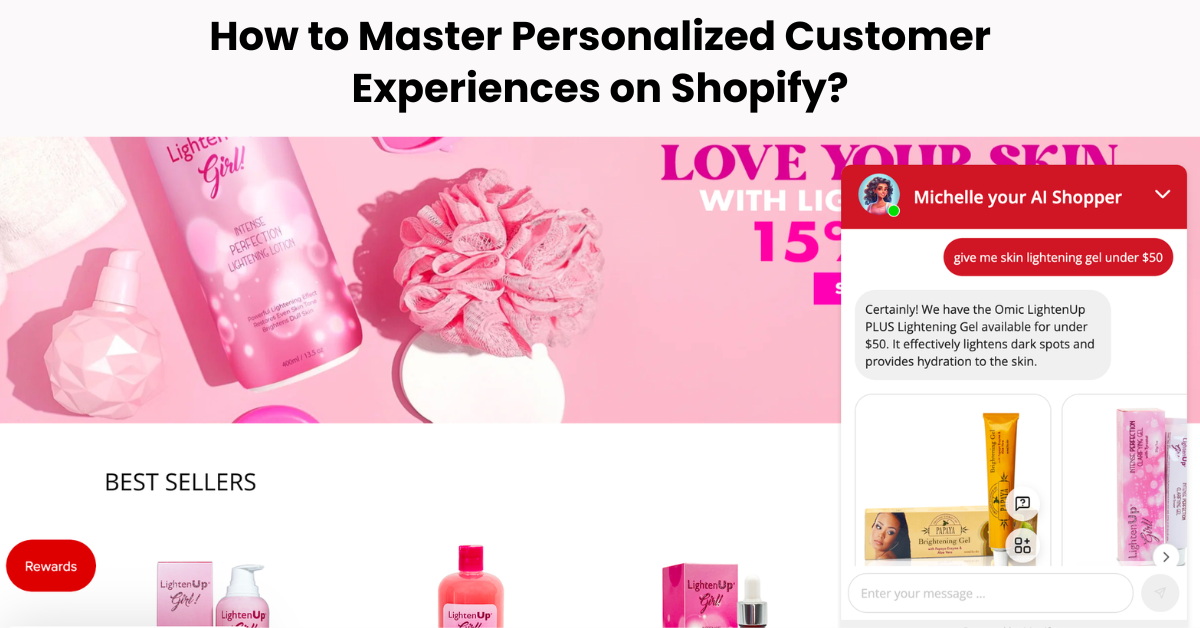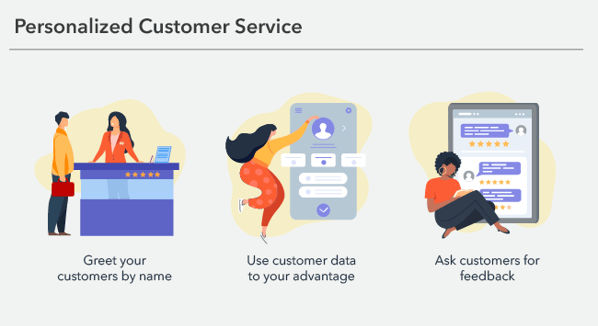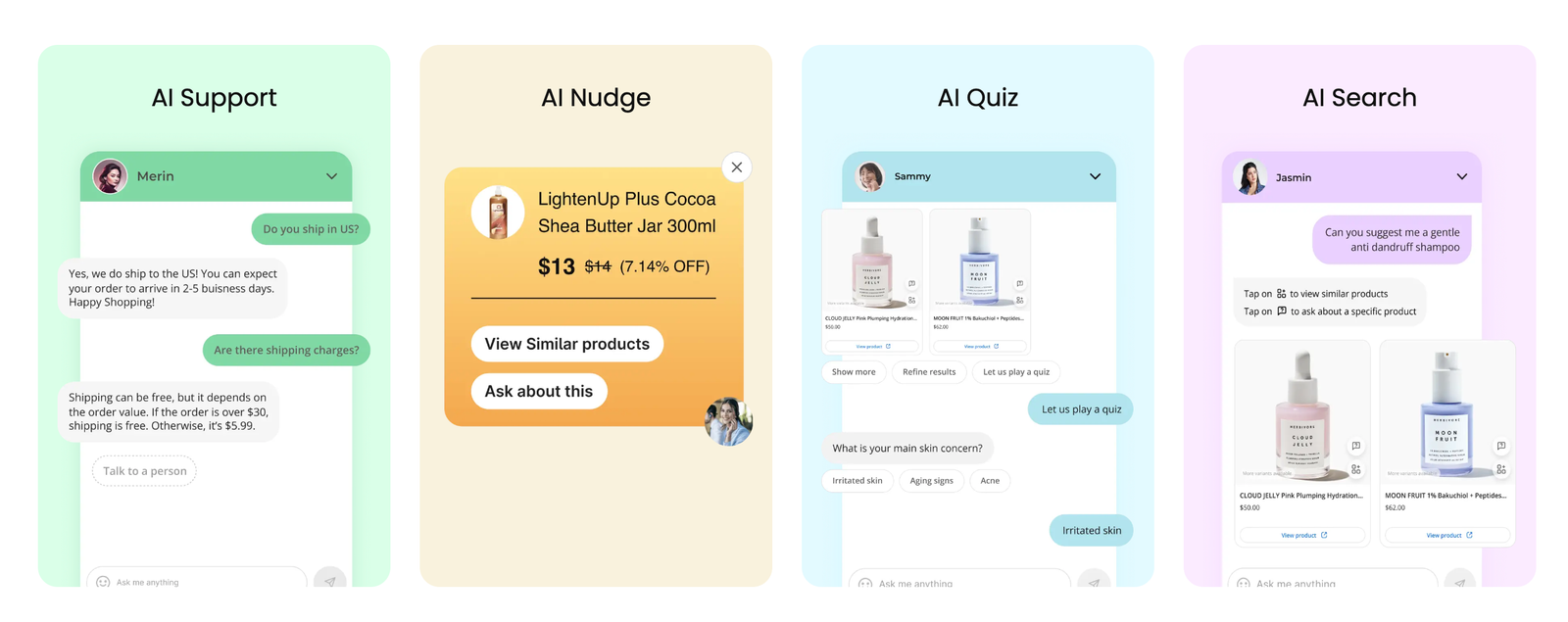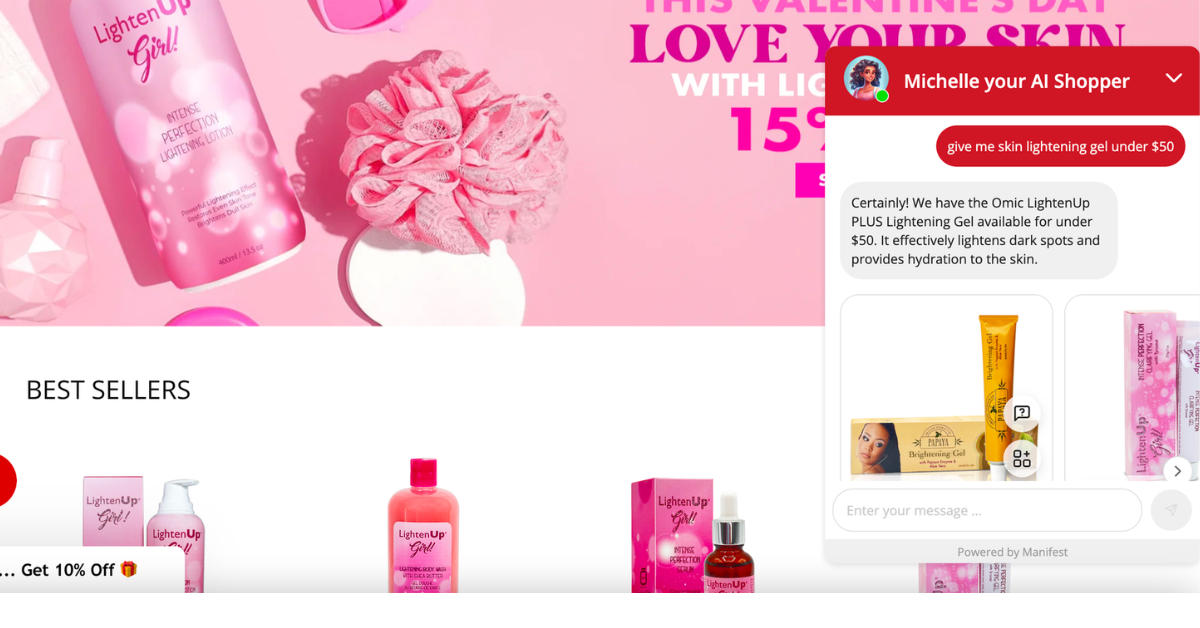How to Master Personalized Customer Experiences on Shopify?

Creating a shopping experience that feels uniquely tailored to each visitor is essential in today’s online retail landscape. On Shopify, achieving this personalized touch can set your store apart, building deeper connections with your customers. This blog will guide you through enhancing your Shopify store using smart, customer-focused strategies. From understanding your audience's needs to implementing tools that cater to those needs, we'll cover practical steps to customize your store’s interaction with every shopper. By the end, you’ll have the insights needed to transform your Shopify store into a place where every customer feels valued and understood, encouraging loyalty and repeat business.
What is Personalized Customer Experience?

A personalized customer experience is a tailored approach to servicing shoppers that caters specifically to an individual's preferences, behaviors, and past interactions. This strategy aims to make every customer feel uniquely valued by offering them a shopping journey that resonates with their specific needs and desires. In practice, this can rangethoughtfully and engagingly from recommending products based on previous purchases to customizing communications with a personal touch.
In the digital marketplace, where competition is fierce, providing a personalized experience can significantly enhance customer satisfaction, foster loyalty, and increase sales. Businesses achieve this by collecting data on customer interactions, analyzing their shopping habits, and utilizing this information to deliver targeted content, suggestions, and offers.
For example, an online store might send a birthday discount to a customer or display a curated list of products on their homepage based on their browsing history. This level of attention makes customers feel seen and appreciated, encouraging a deeper connection with the brand.
Implementing personalized experiences is more than a marketing tactic; it's a comprehensive approach to customer service that acknowledges the individuality of each customer, striving to meet their needs thoughtfully and engagingly.
Why Customers Like Personalization?
Customers appreciate personalization because it makes their shopping experience more relevant and convenient. When businesses tailor their interactions, customers are more likely to find products and services that match their interests and needs. This customization saves customers time by filtering out irrelevant options, making their decision-making process smoother and more efficient.
Personalization also makes customers feel valued and understood. Receiving recommendations or communications that reflect their preferences and past behavior shows that a business pays attention to individual customer needs. This recognition can enhance the emotional connection between customers and the brand, fostering loyalty.
Moreover, personalized experiences often lead to better customer satisfaction. When customers encounter a service that seems crafted just for them, it enhances their overall perception of the brand. This satisfaction not only encourages repeat business but also increases the likelihood of positive word-of-mouth, as delighted customers are more inclined to share their experiences with others.
In essence, personalization taps into the desire for convenience, recognition, and satisfaction, making customers more engaged and committed to a brand.
Benefits of Personalized Customer Experience
Personalized customer experiences offer numerous benefits that can significantly impact a business's success and customer satisfaction. Here are the key advantages:
- Increased Customer Loyalty: Tailoring experiences to individual preferences and needs makes customers feel valued and understood, fostering a stronger emotional connection with the brand. This can lead to higher customer retention rates.
- Enhanced Customer Satisfaction: Personalization ensures that customers encounter products, services, and messages that are relevant to them, improving their overall shopping experience and satisfaction levels.
- Higher Conversion Rates: By presenting customers with offers and products that align with their interests, businesses can see an uptick in conversion rates. Personalized recommendations and promotions are more likely to resonate with customers, encouraging them to make a purchase.
- Improved Customer Engagement: Customized content and interactions are more engaging for customers. This can lead to increased interaction with the brand across various channels, including websites, email marketing, and social media.
- Competitive Advantage: Offering a personalized customer experience can set a business apart from competitors. In a market where many products and services are similar, personalized interactions can be a key differentiator.
- Efficient Use of Marketing Resources: Personalization allows businesses to allocate their marketing resources more effectively by targeting users with high precision. This leads to more efficient and effective marketing campaigns.
- Increased Customer Lifetime Value: Customers who have personalized experiences are more likely to continue doing business with a brand over time. This loyalty translates into higher customer lifetime value, with repeat purchases and increased spending.
- Better Customer Insights: Implementing personalization strategies requires collecting and analyzing customer data. This process provides valuable insights into customer preferences and behavior, allowing businesses to continuously improve their offerings.
Drive Personalized Customer Experience with an AI Shopping Assistant

Manifest AI is an AI Shopping Assistant, powered by GPT. The AI-driven features of this tool are Search & Recommendations, Quizzes, Nudges, and Support which can solve 95 of customer queries on the spot and can reduce customer support agent costs by 80-90%. Here are some of the benefits of it:
- Understanding Customer Preferences: Manifest AI employs algorithms that analyze customer interactions, such as past purchases and browsing history, to understand individual preferences and needs.
- Tailored Product Recommendations: Based on this analysis, Manifest AI generates personalized product suggestions for each customer, ensuring that shoppers are more likely to find items that resonate with their tastes and interests.
- Enhanced Search Capabilities: Manifest AI improves the search function on Shopify stores by enabling customers to use natural, conversational language to find products, making the search process more intuitive and user-friendly.
- Responsive Customer Support: The platform provides automated, yet personalized, customer support, answering queries and offering help in real-time, which streamlines the shopping experience and resolves issues promptly.
- Engaging Shopping Experience: Through interactive features like quizzes, Manifest AI gathers more nuanced preferences from customers, further refining the personalization of product suggestions and content, making each customer's shopping journey unique and engaging.
Personalized Customer Experience Examples

Personalized customer experiences are pivotal in today’s digital marketplace, offering customers a sense of individual attention and care that can significantly boost loyalty and sales. Here are some compelling examples:
- Product Recommendations Based on Browsing History
Online retailers, using algorithms, analyze a customer’s past browsing and purchase history to suggest products they might like. For instance, Amazon provides "Recommended for You" suggestions that are uniquely tailored to each user’s interests. - Personalized Emails
Companies send emails that address the recipient by name and include offers or products relevant to their previous interactions with the brand. Sephora, for example, sends birthday month discounts to members and recommendations based on past purchases. - Customized Website Experiences
Some websites dynamically change content, offers, or greetings based on the visitor’s location, time of day, or past interactions. Netflix personalizes its homepage for each user, showing movies and shows based on viewing history. - Interactive Chatbots and Virtual Assistants
Brands use AI-driven chatbots to offer personalized shopping advice or customer support. H&M’s chatbot asks users questions about their style and then suggests outfits. - Personalized Shopping Apps
Apps that remember user sizes, preferences, or dietary restrictions can offer a highly personalized shopping experience. Nike’s shopping app, for example, suggests products based on user activity and preferences.
Conclusion
Mastering personalized customer experiences on Shopify is about understanding and catering to the unique needs and preferences of your customers. By utilizing tools and strategies such as tailored product recommendations, personalized communications, and interactive features, you can significantly enhance the shopping experience. This not only increases customer satisfaction and loyalty but also drives sales. Implementing features like AI-powered assistants and data-driven insights allows for a deeper connection with your audience, making each interaction feel personal and relevant. Remember, the key to success lies in continuously analyzing and refining your approach based on customer feedback and behaviors, ensuring your Shopify store remains a preferred destination for personalized shopping experiences.

.png)
